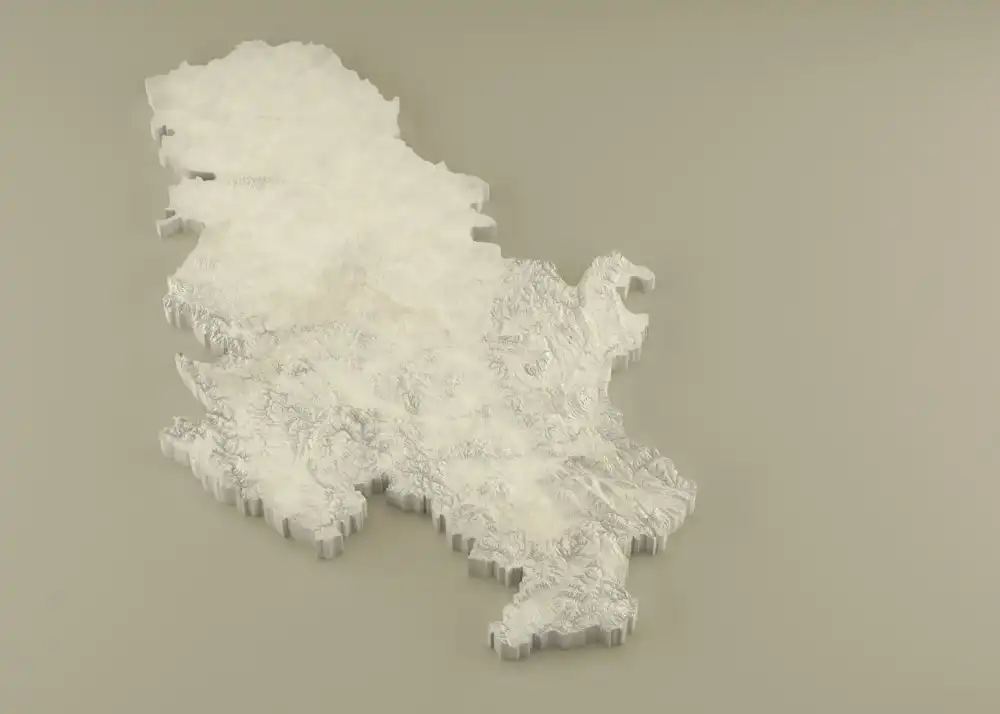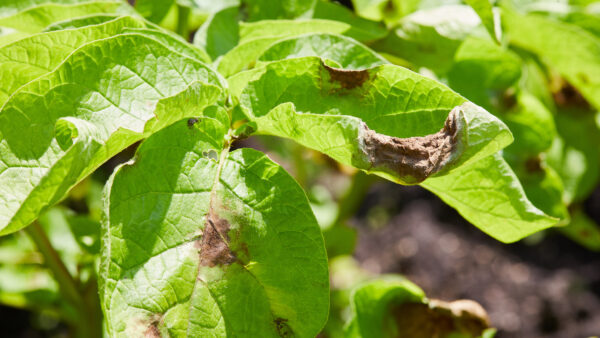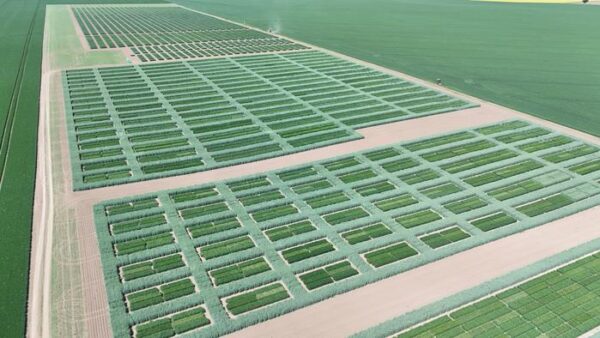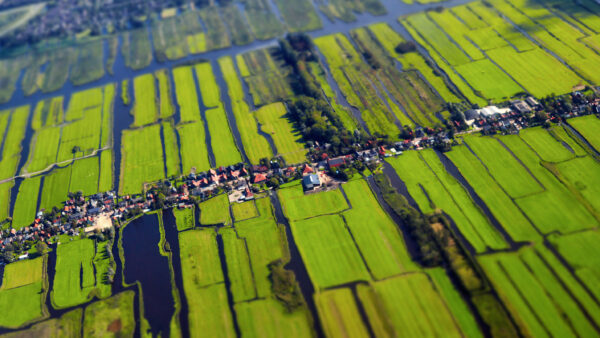Agriculture is a very significant branch of the Serbian economy, contributing about 19% to the Gross National Product. Serbia has 6,246,000 ha of agricultural land, out of which 3,321,000 ha is arable land used for cereals (66%), industrial crops (14%), vegetables (12%), horticulture (0.05%), and the rest is fallow-uncultivated land (4%). Maize is the most important cereal, followed by winter wheat. Other important crops are barley, soybean, sunflower, and alfalfa. The Republic of Serbia has favourable environmental conditions for the development of agricultural production. Quality soil, water resources and unpolluted environment provide the opportunity to develop organic farming and agro-tourism. In the Republic of Serbia there are 800,000 families engaged in agriculture, and for half of them agricultural production is their primary activity. Agricultural products make up 50% of the total exports of Serbia. Therefore, it is a clear goal of the Ministry of Agriculture, Forestry and Water Management, of the Government of the Republic of Serbia, as well as the Seed Association of Serbia to improve the development of this sector, which is one of the pillars of the economy.
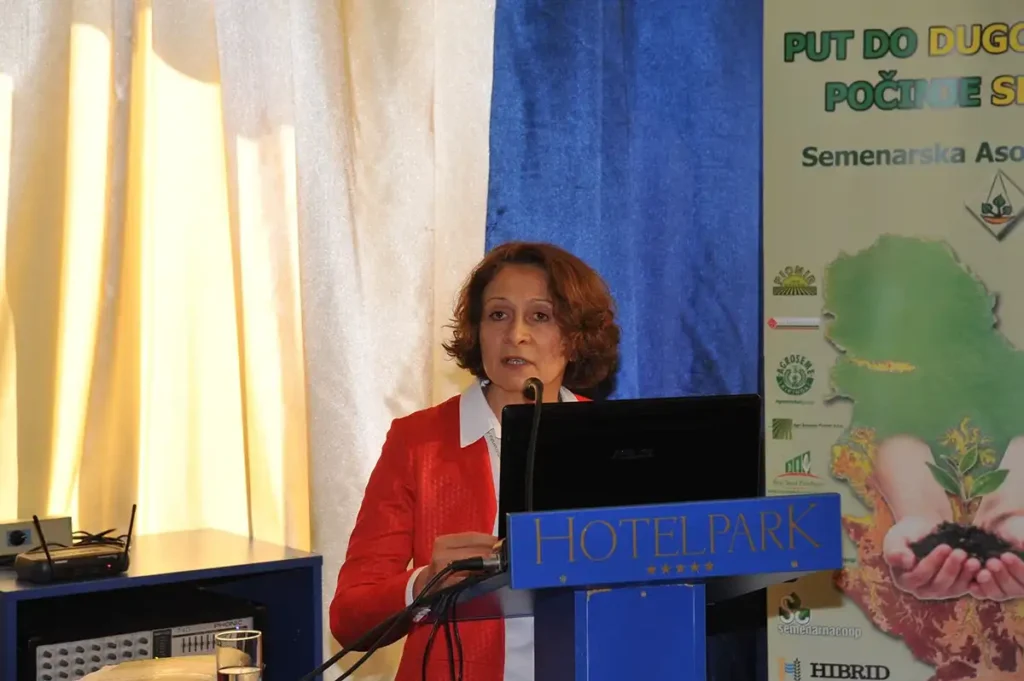
The seed sector plays a major role in agricultural performance and development. Additionally, the Republic of Serbia has experienced producers, top experts and scientists, as well as long tradition in breeding and seed production. Support to the agriculture sector is provided by a significant number of scientific and research institutions engaged in fundamental science, breeding and seed production of various plant species. More than 3,000 varieties of different plant species have been recognized and are accessible to farmers. The area under seed production is about 43-45,000 ha and the quantity of certified seed of the main field crops (winter wheat, maize, soybean and sunflower) amounts to 121,000 tons.
The Republic of Serbia must perceive the value of seed production and the significant gain from seed export, and also must recognize the volume of money flow and profitability of the seed business. The Seed Association of Serbia and all its members are willing to create a favourable environment for breeding, high quality seed production and strengthening the competitiveness of Serbia in the international market, with substantial prosperity in agriculture and the seed business, and with a legislation that is harmonized with the EU.
The Seed Association of Serbia
The foundation of the Seed Association of Serbia (SAS) marks the beginning of the organized seed sector in the Republic of Serbia. Nineteen years ago, in 2001, the initiative on the need for a well-organized seed sector in Serbia commenced, encompassing seed production and legislation that covers this production and education of all participants in the seed supply chain. The main idea was to maintain and improve the competitiveness of Serbian seed in national and international markets, and to provide profitability and attractiveness of the seed production. SAS was accepted as a full member of the International Seed Federation (ISF) in 2002 and the European Seed Association (ESA) in 2006 and presided over the Eastern European Seed Network (EESNET) until it merged with ESA. Today, the Association is very strong in gathering all participants in the well-organized seed industry of Serbia and representing general interests of its members.
The main goals of SAS are the following:
- Well-organized, competitive and innovative seed sector of the Republic of Serbia
- Lobby for precise seed legislation harmonised with the EU
- Take over the leadership position in the region regarding seed production that our seed sector previously occupied
- Institutional organization of the certification system – improving and establishing the system similar to other countries
- Promote the use of certified seed and educate the farmers
- Connect the domestic and foreign seed sector, especially in the region including Slovenia, Croatia, as well as Bosnia and Herzegovina
Organizational Structure of the Seed Association of Serbia
The first visionary and founder of the SAS was Dr. Mirjana Milošević. Since 2007, Dr. Svetlana Balešević Tubić has been the Secretary General of SAS. Together with the President of SAS, Sandra Bogdanović, Balešević Tubić has significantly improved performance and visibility of the SAS, especially the cooperation with the Ministry of Agriculture, Forestry and Water Management and other decision-makers. Her 25-year-long work and experience in the seed business and research contributed to creating a suitable environment for the Serbian seed sector. Furthermore, representing Serbia at the European and international level and participating in activities of the international seed organizations, she has improved the SAS cooperation at the regional and international level and enabled for the voice of the Serbian seed industry to be heard. Currently, as the director of the Institute of Field and Vegetable Crops in Novi Sad, the largest institute in the field of agricultural research in South-East Europe, she contributes to the transfer of knowledge and innovation into practice, to farmers. SAS President Sandra Bogdanović lobbying for the interest and goals of SAS greatly contributed towards the growing number of SAS members.
The Assembly is the highest body of the SAS with 25 representatives of members. The Board of Directors creates activities of the SAS and pursues the set goals. There are nine members of the Board of Directors: President, Secretary-General and seven member-elected representatives from the fields of breeding, seed production, seed processing, seed trade, agricultural extension services, and multinational seed companies. Within SAS there is a Group for Breeding and a Group for GMO. Meetings with all SAS members are often held on specific topics, where discussions are held, and solutions proposed.
Important Topics and Activities of SAS
SAS publishes flyers, brochures and books in order to facilitate education but also to lobby for the most important issues in the seed sector. Additionally, in doing so, SAS represents the importance of the seed business, tells where we are and where we are going, and proposes solutions and activities to improve the Serbian seed sector. In Serbia there is no independent certification institution and all activities related to the seed certification process are under the Ministry for Agriculture or the Agriculture Extension Services authorized by the Ministry. Currently, such a system is functional, but a simplification of procedures and the establishment of an efficient certification system is necessary for the Serbian seed sector. SAS calls to action with one goal – To enable the Republic of Serbia to become one of the very stable and competitive countries in the region, with significant prosperity in agriculture and seed business, with policies and legislation harmonized with the EU, and to be viewed as a much stronger partner in the international seed market.
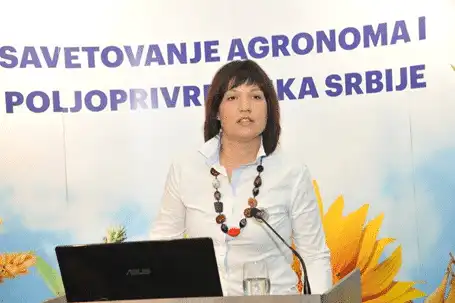
The Association has always focused greatly on advanced training and helping its members in the business processes by organizing annual professional excursions to seed companies, producers and processing centres around Europe. This is regarded as a special accomplishment of the Association, and members have assessed such activities to be very important for the improvement of the Serbian seed sector and increase of product quality and competitiveness at the international market.
Moreover, the Association addresses other topics and areas within the seed sector organizing various seminars (e.g. on breeders’ rights, seed treatment, GMO, mycotoxins, EU accession negotiations), work meetings and debates (seed processing, quality-based wheat payment, seed treatment), and business lunches with important decision-makers. In this way, both the general public and the decision-makers are being directed to certain issues, consequences for the seed sector and the country, but are also presented with concrete proposals and solutions.
Seed Days of Region
Cooperation in the region and traditional Seed Days of Region were launched by the SAS, aimed at improving the seed sector in the region, harmonization of the regulations and promotion of the seed trade. The first Seed Days of Region were held in Novi Sad in 2013 with over 100 participants. Since then, Seed Days of Region have been held continuously every year hosted by Serbia, Croatia and Slovenia. Such events contribute towards creating new approaches, solutions and techniques in the seed business, and the direct communication among producers, processers and traders creates new business ideas. Representatives of the ministries and national seed associations sit at the same table and discuss the challenges and potential solutions for the betterment of the whole region. Greatly supported by the SAS, the 7th Seed Days of Region in 2019 were held in Sarajevo, and Bosnia and Herzegovina took part in it. The panel discussion on “The Importance of Associations”, organized by the SAS, drew a great deal of the participants’ attention. The SAS puts in a lot of effort to support the establishment of the Seed Association of Bosnia and Herzegovina. It could be said that this initiative for gathering of regional seed sector is one of the most important achievements of the SAS.
We Speak Up for Science
The SAS organizes workshops and seminars for all stakeholders in order to raise awareness on the importance of breeding innovation for agricultural efficiency. We speak up for science, and researchers or breeders, present their innovations and their advantages and benefits for farmers or the entire sector. One of the main challenges for farmers in Serbia is how to achieve high and stable yield related to the negative effects of climate change, especially diseases that were not significant in Serbia previously. Members of the SAS dealing with breeding include that in their breeding programs and create tolerant varieties to drought or diseases. They also push farmers to accept innovation and adopt agricultural practices, for instance, diversification of production, cover crops and so on. In view of this, a special effort of the SAS is the linkage of the elements of the national seed system: breeders, seed producers, market and farmers in order to face challenges and find solutions. This year, the 8th Seed Days of Region will focus on the importance of breeding and innovation in agriculture. The event will take place in Novi Sad, organized by SAS, only two days prior to the World Soybean Research Conference, also to be held in Novi Sad, organized by the Institute of Field and Vegetable Crops and co-organized by SAS.


